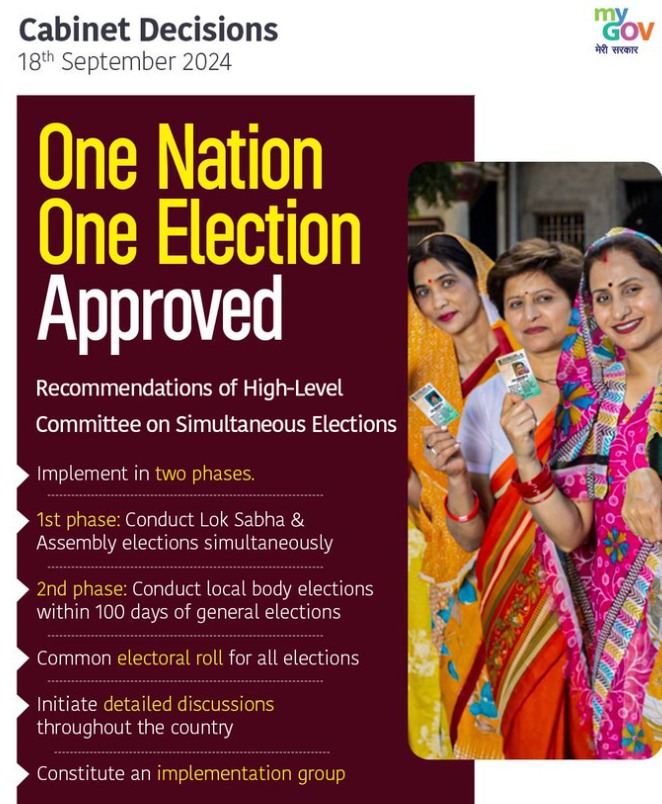19 September 2024 : PIB Summary For UPSC
1. Cabinet accepts recommendations of High-Level Committee on Simultaneous Elections
(Source – https://pib.gov.in/PressReleseDetail.aspx?PRID=2056059 )
| Topic: GS2 – Indian Polity |
| Context |
|

Background Of Simultaneous Elections:
- Between 1951 and 1967, simultaneous elections were held for the Lok Sabha and State Assemblies.
- The 170th Law Commission Report (1999) recommended one election every five years for the Lok Sabha and Legislative Assemblies.
- The 79th Parliamentary Committee Report (2015) proposed a two-phase method for implementing simultaneous elections.
High-Level Committee:
- The committee, chaired by former President Shri Ram Nath Kovind, consulted various stakeholders, including political parties and experts.
- The committee received extensive feedback showing widespread support for simultaneous elections.
Key Recommendations of the committee:
- Two-Phase Implementation:
- Phase 1: Conduct Lok Sabha and Legislative Assembly elections together.
- Phase 2: Hold local body elections (panchayat and municipal) within 100 days of general elections.
- Common Electoral Roll: Implement a common voter roll for all elections to avoid duplication of electoral processes.
- Wider Discussions: Encourage comprehensive discussions on simultaneous elections across the country.
Way Forward:
- Implementation Group: A specialised group should be formed to oversee the rollout of simultaneous elections.
- Stakeholder Involvement: Broad consultations should continue with political parties and electoral experts.
- Phased Rollout: The committee suggested a gradual transition to simultaneous elections to manage logistical challenges.
This approach aims to streamline the election process, reduce costs, and enhance governance stability.
| PYQ: ‘Simultaneous election to the Lok Sabha and the State Assemblies will limit the amount of time and money spent in electioneering but it will reduce the government’s accountability to the people’ Discuss. (150 words/10m) (UPSC CSE (M) GS-2 2017) |
| Practice Question: Discuss the advantages and challenges of implementing simultaneous elections in India as recommended by the High-Level Committee chaired by Shri Ram Nath Kovind. (150 Words /10 marks) |



